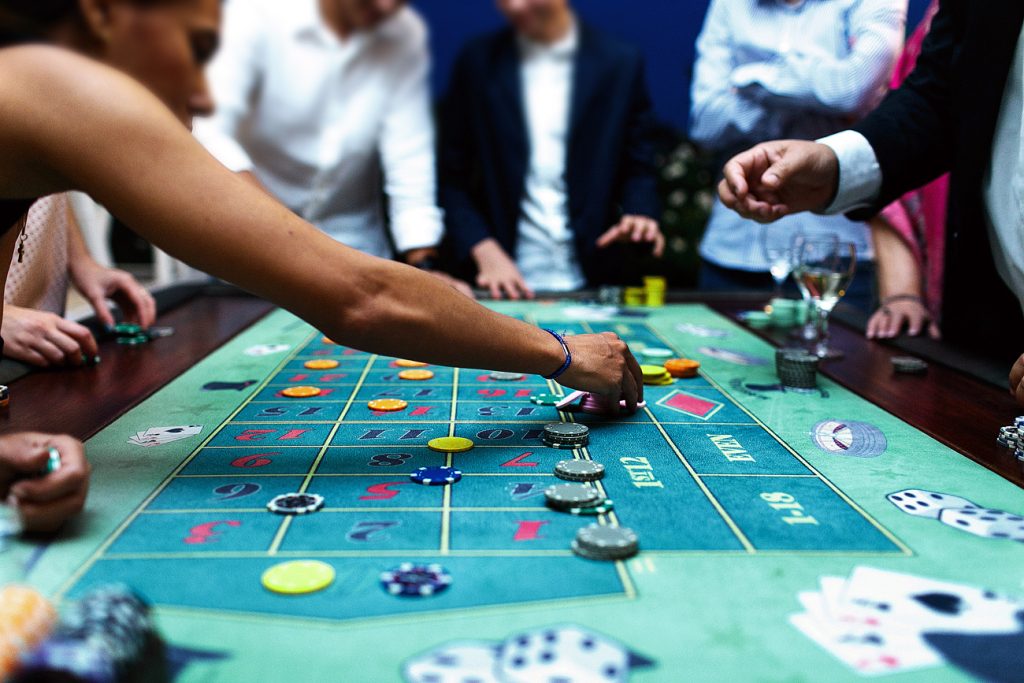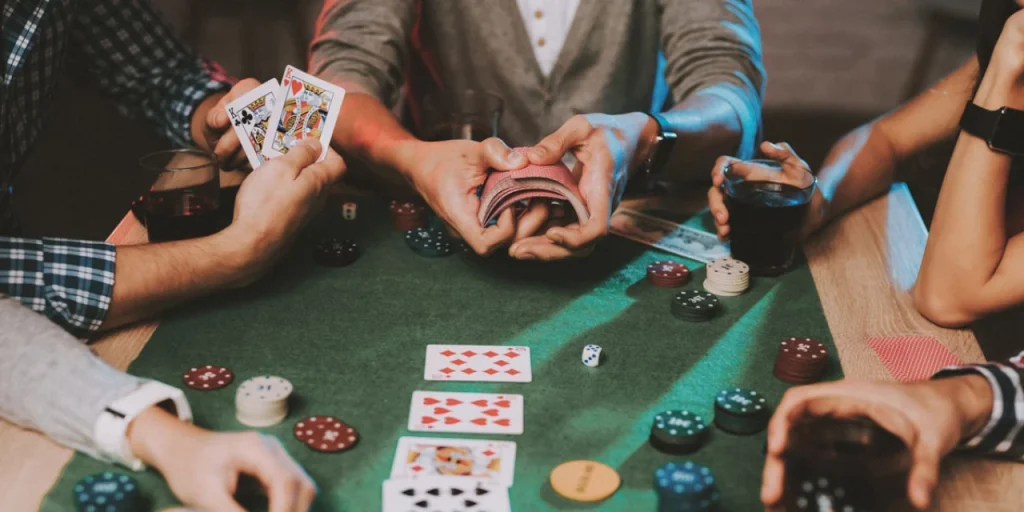The first bet in an online casino always sounds louder than the others. The gambler is just opening the interface, the balance has not yet been touched, and there are a hundred questions in their head. Complex mechanics at the start are confusing. Therefore, gambling with simple rules becomes the best starting point. Simplicity does not exclude excitement. On the contrary, it enhances it through instant connection and a minimum entry threshold.
Slot Machines: Fast Pace and Clear Rules
Slots are the most accessible type of slot machine. All you need to do is click the “play” button and watch the reels spin. The rules don’t require you to memorize complex combinations, as the system automatically calculates your winnings.
Modern slot machines come in a variety of themes, from Egyptian tombs to neon-lit Tokyo. The RTP of popular slots ranges from 94% to 97%, which means that every spin has a significant chance of success. Some of the most popular slots include Book of Dead, Starburst, and Gonzo’s Quest.

It is gambling with simple rules on slots that creates a solid foundation for the first experience. Minimal risk, short rounds, and instant feedback are the perfect formula for beginners.
Roulette
 Roulette has been holding positions for decades. The European version with one zero reduces the casino advantage to 2.7%. The player bets on a number, sector, or color and watches the wheel spin. It’s very simple, but exciting.
Roulette has been holding positions for decades. The European version with one zero reduces the casino advantage to 2.7%. The player bets on a number, sector, or color and watches the wheel spin. It’s very simple, but exciting.
Gambling with simple rules is appreciated for accessibility: here the bet does not require analysis, and the rules are clear in a minute. Among the most popular options are color, dozen, and even/odd bets.
For better control, a Martingale strategy or a fixed bet without an increase is suitable. This helps to maintain balance and avoid excessive risk.
Blackjack: Logic, Counting, and Minimal Luck
The bet is made, and the dealer deals the cards. The goal is to reach 21 points or closer than the dealer. It sounds simple, and it is. However, blackjack is often chosen by beginners in casinos because of its balance between chance and strategy.
The classic version uses a standard deck of 52 cards, and the odds of winning are around 49%. It is one of the few games where decisions can impact the outcome. Beginners often use basic strategy tables to understand whether to take another card or stop.
Not just slots and roulette: other available formats for beginners
A variety of simple gambling games allows beginners to quickly get involved without prior preparation. These formats provide an easy understanding of the mechanics while still maintaining elements of excitement and thrill. Below are some simple gambling games suitable for starting in an online casino:
- Keno is a digital lottery: choose numbers, wait for the draw, and compare the results.
- Baccarat is a game where you bet on a player, a banker, or a draw. It is a simple game with one of the lowest house edges.
- Craps (a simplified version) is a game where you roll dice and bet on the outcome. The main version is more complex, but there are adaptations for beginners.
- Video Poker (Jacks or Better) is a combination of poker and slot games with a fast-paced gameplay.
- Easy casino games, including scratch cards and virtual roulette wheels, offer minimal risk and quick results.
Each format demonstrates which casino games are the easiest, while still maintaining excitement and appeal.
Why should a beginner look for gambling games with simple rules in online casinos?
The digital format makes it easy to sign up. Online casinos offer demo modes, auto-play, and user-friendly interfaces. Beginners can quickly get started, place bets, and track their balance in real-time.
Casinos that cater to beginners provide game tutorials, guides, and video lessons. Customer support is available 24/7 via live chat. These features enhance accessibility and security, reducing the risk of losing money at the outset.
Why do simple games drag on?
The brain reacts to simplicity faster. The less time it takes to learn the mechanics, the sooner emotional involvement kicks in. This is why formats like gambling games with simple rules are so popular. Quick understanding creates a sense of control, which in turn increases engagement.
The effect of immediate results after a bet is a key driver. The player feels the system’s response instantly. In slots, it’s the animations and sounds, in roulette, it’s the movement of the ball, and in video poker, it’s the instant comparison of combinations. These elements create short, intense gaming cycles that keep players engaged.
According to statistics, the average gaming session for newcomers in online casinos is between 18 and 26 minutes. Simple games allow you to use this time effectively, without additional rules, delays, or confusion in terms.
Strategies for beginners
Beginners often lose their balance due to impulsive betting. To avoid losing, it is important to use basic strategies, especially when choosing gambling games with simple rules.
A fixed bet is a way to control your spending. Regardless of your winnings, the amount remains constant, minimizing your risk.

Time limits are a second layer of protection. Your gaming session is limited to 30 minutes, followed by a break. These methods help you stay focused and manage your budget.
In slots with an RTP of 96%, when betting 20 rubles per spin for the same session, the system returns about 576 rubles out of 600. This creates a comfortable environment where you can play without pressure or fear.
Who else is suitable for gambling with simple rules?
It’s not just beginners who appreciate beginner-friendly games. Experienced gamblers often return to them as a respite after complex strategic formats like poker, betting, or live games.
Players often choose simple gambling games in the following situations:
- a short session (during a lunch break, on the way home);
- stress fatigue (less decision-making, more emotions);
- testing new platforms (a quick test without deep involvement);
- starting a new strategy (for example, testing bank management).
This trend is especially active in mobile versions of online casinos, where the speed of decision-making comes to the fore. According to industry surveys, more than 63% of mobile players start with simple formats such as slots and roulette.
Conclusions
 Simple mechanics, quick results, and high engagement form the basis of a confident start. It is the gambling games with simple rules that allow beginners to enter the world of casinos without stress, while still providing a full gambling experience. These games provide the “first step” that is essential for entering the world of gambling.
Simple mechanics, quick results, and high engagement form the basis of a confident start. It is the gambling games with simple rules that allow beginners to enter the world of casinos without stress, while still providing a full gambling experience. These games provide the “first step” that is essential for entering the world of gambling.
 en
en  ru
ru  de
de  ar
ar  es
es  nl
nl  fr
fr  it
it  pt
pt  hi
hi  el
el 









